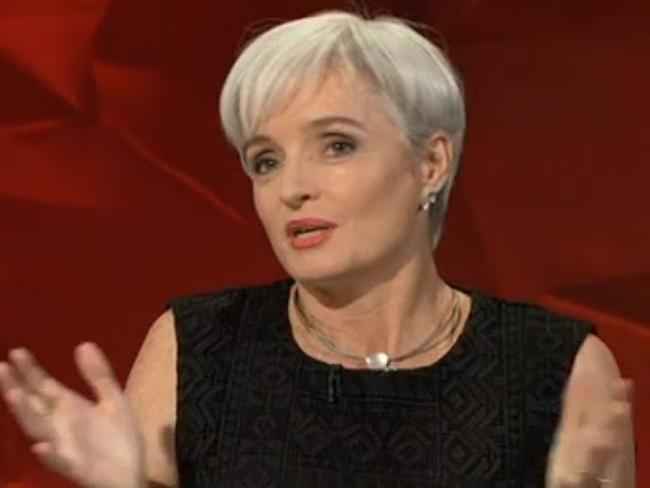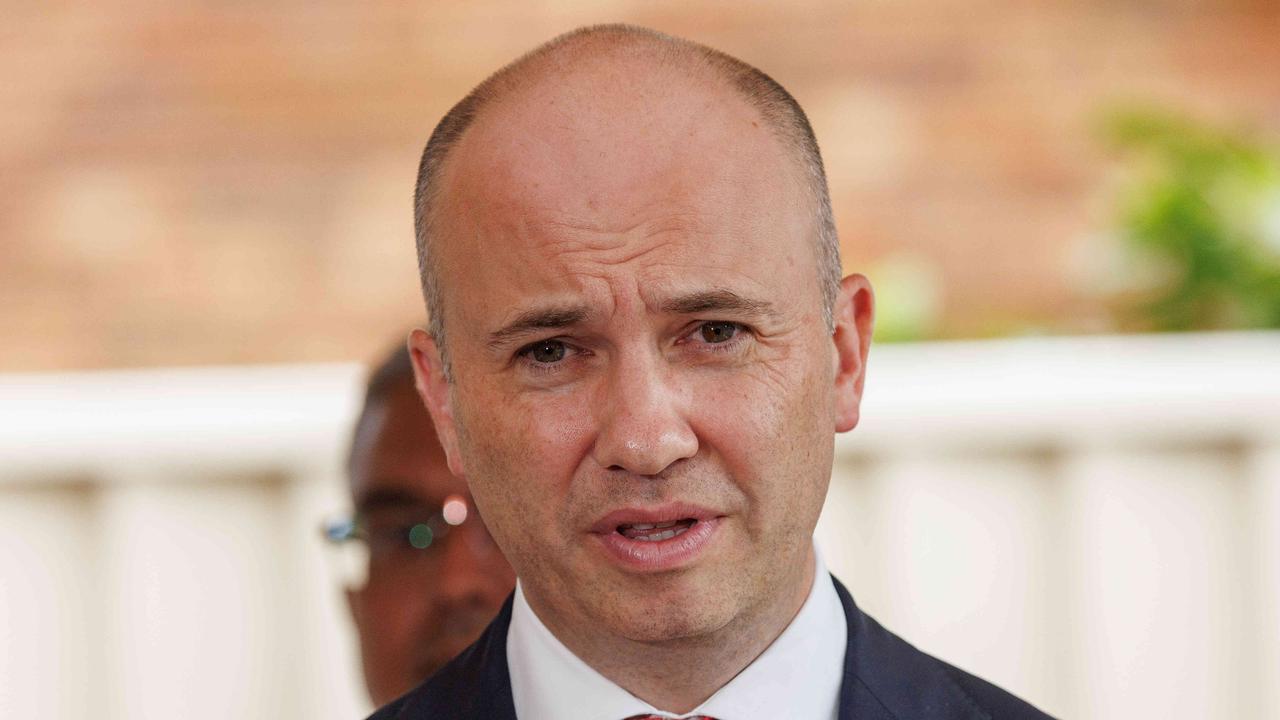Australia’s Chief Scientist says there’s a ‘genuine reason for concern’ over February temperature hike
WHEN Australia’s Chief Scientist says you should be concerned, it’s time to take notice. This is why he’s worried.
THE shocking record-breaking temperatures in February are a “genuine reason for concern”, says Australia’s Chief Scientist Alan Finkel.
On the day that a bombshell climate report from NASA revealed temperatures were the warmest in more than a century of global recordkeeping, the topic was certain to come up during Monday night’s Q&A panel discussion show dedicated to science.
The figures have already spurred one scientist, Stefan Rahmstorf, from Germany’s Potsdam Institute of Climate Impact Research to suggest there is a “climate emergency”.
February Smashes Earth's All-Time Global Heat Record by a Jaw-Dropping Margin https://t.co/6B937T0Uk9 pic.twitter.com/uZqvum4aVA
— Stefan Rahmstorf (@rahmstorf) March 13, 2016
Dr Finkel told the Q&A audience “it’s probably too early to say that”, but he was careful to add: “you wouldn’t want to dismiss it”.
“There is a genuine reason for concern.”
Fellow panellist, marine ecologist and TV host Emma Johnston agreed.
“We have just had some astounding news today,” she said.
“(We’ve had) the warmest February on record and it’s 1.5 degrees above the average global temperature for the pre-industrial area.
“It’s a surprising thing even to scientists.”

Dr Finkel said the global temperature rise was also consistent with another figure that came out on Sunday measuring the level of carbon dioxide in the atmosphere from Hawaii.
“They’ve determined it’s gone up in 2015 by 3.05 parts per million,” he said.
“That turns out to be the largest annual increase since recording began more than 50 years ago.
“What it says is that for all the effort we are putting into trying to avoid increases of emission, we are losing.”
The news comes at a time when government funding cuts are forcing the CSIRO to fire 350 staff, with a “substantial” number of climate scientists expected to go.
Dr Finkel confirmed that of the 100-odd people in the climate research area, this would be reduced to about 30 or 40 people.
“(The Government) wants to put resources into agricultural improvements to deal with the heat and the other changes,” he said.
But Dr Finkel said “critical” marine measurements as well as greenhouse gas data collected at Cape Grim would continue.
“That’s important because if we have a gap in our recording of data, we can never ever come back and fill that gap,” he said.
The importance of measurements and modelling was highlighted by Professor Johnston, who said there were still questions around how climate change would actually play out.
“If we want to to be able to make predictions that are important to the national interest, we need sustained funding of very fine scale measurements in modelling,” she said.
“They’re crucial to farming, crucial to fishing, crucial to industry.
“They’re actually of massive national interest.”
Discussion on the night included explanations of multiverse theory, string theory and gravitational waves.
But despite the huge brain power on display, the biggest applause went to a 10-year-old girl who asked a question about baby sea turtles before having one thrown back at her.
“I heard you do something remarkable which is to recite Pi ... to a lot of decimals,” Q&A host Tony Jones asked her. “I can do it to 88 now,” she confirmed.
“Can you give us a dozen?” Jones asked. Her nerdy response was the most charming advertisement for science lovers everywhere.
Jacinta does Pi for us #QandA https://t.co/2OuBMT9TuE
— ABC Q&A (@QandA) March 14, 2016
But it preceded a broader discussion about women in science and whether there was in-built sexism in the industry.
Prof Johnston highlighted one aspect of why it was so difficult for women.
“We know that there are major structural things that need to change about the way we’ve created this science career to ensure we don’t enforce an undergraduate degree of four years, PhD of four or five years and then six years of post doctoral work where people are expected to move every two years in order to get the credentials to get a secure senior position.
“That’s a recipe for knocking out any woman who wants to have children and who has made it through that level.”
She said a re-structure was need to enable women to have children, maintain a secure job and allow fathers to take paternity leave so that it was a more shared option.
“Until you change the dominant person type, then cultural stereotypes will be there and stereotype threat will exist. Someone like me will be less confident about my capacity to do science because I am only one of 17 per cent of professors in Australia who are women.
“That’s something that hasn’t changed since the 1960s and, indeed, some people think we’re going backwards.”
The final question of the night asked whether the emphasis on jobs and economic outcomes in science was beneficial.
Dr Finkel said there was a need for balance.
“We have spent billions on the Large Hadron Collider, the SKA, the Hubble Space Telescope, we have wonderful investments, huge investments in pure science.
“I think it’s fantastic ... but we also need to have a balance with translation of science for economic and societal benefit.”
Prof Johnston agreed saying.
“We use science to help understand our world. Often it might be made into a gadget we can sell, sometimes it’s made into a way of preventing disasters. It’s always useful. You just never know when.”
World-renowned physicist and string theorist Professor Brian Greene acknowledged there was a place for thinking about jobs and economic development but he said scientists did basic research to explore “fantastically exciting” ideas.
“If there’s an economic benefit to it, fantastic, but the true motivation comes from a deep human spirit of discovery.”
Professor Tamara Davis, an astrophysicist, agreed saying: “In these kind of conversations, I will risk quoting (physicist) Richard Feynman who said ‘science is a bit like sex, it might have practical consequences but that’s not why we do it’.”



